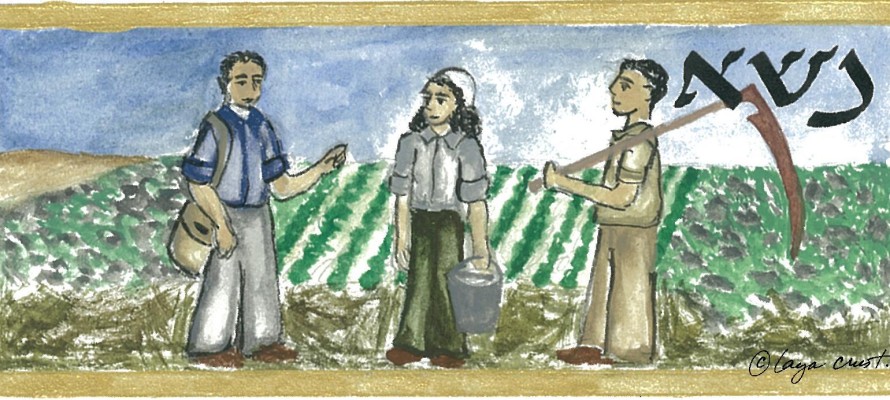This week’s Torah portion is ‘Nasso’ (Numbers 4:21 – 7:89), meaning “to lift up.” It is the longest portion in the entire Torah. Among the topics discussed in Naso are the priestly duties, purity of the camp, the unfaithful wife, Nazirite law, the priestly blessing and more.
By Rabbi Ari Enkin
This week’s Torah reading, Naso, discusses the Nazirite (“Nazir” in Hebrew), a person who adopts a number of stringencies in striving for a higher level of holiness. The primary restrictions are that he is forbidden to consume wine, he must allow his hair to grow and he may not have anything to do with the dead. (The latter restriction is binding on all Kohanim, those from the Priestly tribe, as well.)
The Torah does not promote asceticism, which is why the lifestyle of the Nazirite is not for everyone, nor is it recommended! Such a lifestyle is only for the select few who wish to limit their physical pleasures in order to emphasize the spiritual. Wine, for example, is not an absolute necessity, and hair is often the gateway to vanity and physical attraction.
The Talmud tells the story of the only Nazirite from whom Shimon Hatzadik [Shimon the Righteous], the High Priest, would accept sacrifice. Shimon Hatzadik asked him why he had decided to accept such a restrictive lifestyle. The young man answered that he realized that he was an exceptionally handsome man, due primarily to his hair, and that he had become obsessed with his appearance and with impressing others. He felt that he needed to accept certain restrictions in order to keep himself from focusing on such a superficial aspect.
So, too, when a person ceases to live as a Nazirite, his hair must be shaved to the scalp. This was yet another safeguard to prevent the individual from becoming overly concerned with his physicality.
It is noted that society is not comfortable with someone who has wildly long and unkempt hair nor with a person with a completely shaved head. The common denominator between the two is that they are both radical opposites and diminish a person’s appearance.
Believe it or not, the Talmud and commentaries assert at length that although such a stringent lifestyle is offered in the Torah, it is actually one that God frowns upon. It is inherently a form of extremism. It is not ideal. It is not desired. It is only for those who feel they need it in order to maintain a healthy level of spirituality. Most of us should be able to maintain a required level if spirituality without having to resort to restrictive lifestyles.
This is the lesson: The Torah opposes extremism! The Torah wants us to adopt Aristotle’s “golden mean” (which is elaborated upon at length by the Rambam – Maimonides, the great 12th-century sage.) Enjoy wine….in moderation. Keep a well-groomed but modest hairstyle. Don’t get carried away with extremism for the sake of spirituality. You are already custom-made and factory-programmed by the Creator to achieve holiness and connection to God without the need for radical lifestyles. The Nazirite has his place in Judaism, but it is only for those who need it. For the rest of us, enjoy your wine…just remember to thank God for it before and after you drink it. L’chaim!
